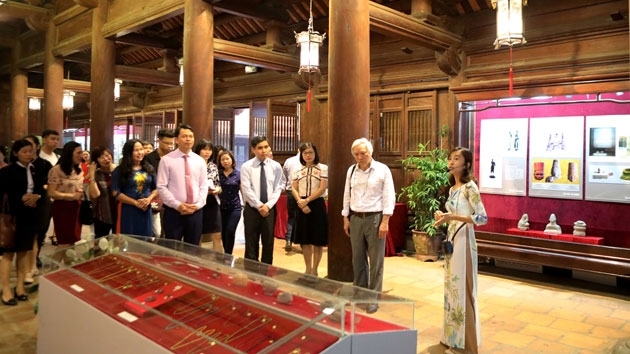
The exhibition is themed “Oc Eo Cultural Heritage - Collection of An Giang Museum” and is co-organised by the Hanoi municipal Department of Culture, Sports and Tourism, the Centre for Scientific and Cultural activities of Van Mieu-Quoc Tu Giam, the Department of Culture, Sports and Tourism of the southern province of An Giang.
Flourishing between the second and the seventh century, Phu Nam Kingdom covered a large area of the southern plain and was home to the Oc Eo culture in An Giang Province. Remaining buried and forgotten for thousands of years, traces of the Oc Eo culture were discovered in Ba The-Oc Eo area in An Giang.
In 1944, French archaeologist Louis Malleret carried out excavations at the site, along with his colleagues from the French School of the Far East. They discovered objects offering proof of a flourishing civilisation and a well-developed trade network with other areas in Southeast Asia.

The relics of this culture give an insight into the lifestyles and attitudes of local people at that time, and also provide information about the history of the ancient Southeast Asian peoples, who had links with the Oc Eo culture.
Hundreds of excavations kicked off from Dong Nai to Kien Giang, resulting in the discovery of tens of thousands of valuable objects, of diverse origins and materials.
The artefacts reveal the impressive technological abilities of Oc Eo’s artisan potters. Their distinctive style is particularly evident in the narrow-mouthed vases and urns bearing intricate floral designs carved around their spouts.
Nhan Dan